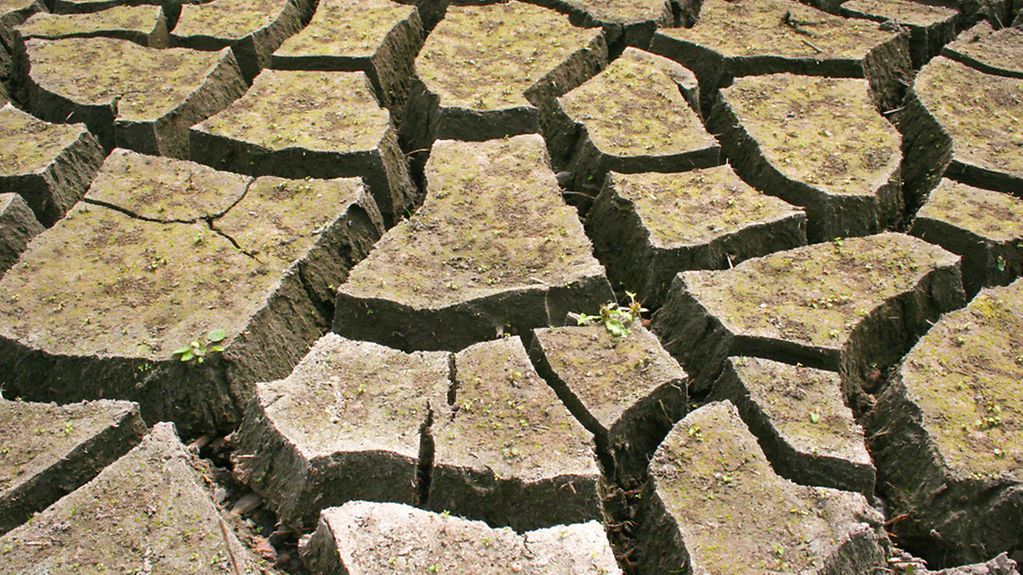Paris Climate Agreement
In New York, 175 states have signed the UN’s Paris Climate Agreement. It is the first agreement of its sort that imposes obligations on all countries. The next step must be for enough countries to ratify the agreement.
4 min reading time

The international community has signed the Paris Climate Agreement - and undertaken to protect the global climate
Photo: picture alliance/G. Czepluch
Federal Environment Minister Barbara Hendricks reported that the EU and Germany intend to ratify the agreement as swiftly as possible.
A total of 175 states have signed the global climate agreement in New York. It is the first climate agreement to impose obligations on all countries. "One thing has been clear since Paris – the entire world is on the move," said Federal Environment Minister Barbara Hendricks. Germany should retain its trailblazer status, she added.
In the agreement the international community has set itself the goal of keeping global warming well below 2° Celsius, as compared to pre-industrial levels. The aim is to keep the rise to no more than 1.5° C. In the second half of the century, the signatory states aim to become greenhouse gas neutral, and to enhance resilience to climate change. For the first time climate change mitigation has now been spelled out international law.
UN Secretary-General Ban Ki-moon spoke of an historical moment. He urged the signatory states to follow up the signing by ratifying the agreement as rapidly as possible. Along with the UN’s poverty reduction work, the climate agreement, he said, has "the power to build a better world".
The agreement is to support particularly vulnerable countries, including island states, with climate change mitigation measures. Financial assistance and technology transfer is also to be made available, to help them adjust to climate change.
The Paris Climate Agreement will come into effect when it is signed by at least 55 countries, representing at least 55 per cent of global greenhouse gas emissions. It cannot take legal effect until the agreement is ratified. Barbara Hendricks has said that Germany and the EU intend to ratify the agreement as swiftly as possible.
Emissions trading – a climate action instrument
The evening before the signing ceremony, in Washington DC, the President of the World Bank Group Jim Young Kim and the IMF’s Managing Director Christine Lagarde called for the percentage of global emissions covered by explicit carbon prices to double to 25 per cent by 2020. Chancellor Angela Merkel lent her support to this initiative. "With carbon pricing and a global carbon market, we can achieve our common goal – of keeping the rise in global temperatures well below 2°C – in a way that is not bound to any one technology, that fosters innovation, is based on market forces and is thus cost-effective."
The international carbon market is seen as a key instrument. This is the only way of achieving the two-degree target. "It means no more and no less than that we need to largely decarbonise our economies in the course of this century," said Angela Merkel in her speech at the UN Climate Change Conference in Paris. In the past, the industrialised countries were responsible for emissions. "We must contribute to technological developments in order to reduce emissions in future, and to enable developing countries too to reduce their emissions," said the Chancellor.
In Paris, Germany presented a study that was produced during its G7 Presidency. It generated criteria that can be used by public and private investors, so that they can help keep global warming down to well below 2° Celsius.
Several states, including Germany, France, Mexico and Canada, have established a "Carbon Pricing Leadership Coalition", which also embraces about 90 private companies and non-governmental organisations. The coalition aims to push for emissions trading systems and taxes on CO2 consumption worldwide.
Financing climate protection
"Climate change will not only determine whether future generations can live in peace, and what their quality of life will be. In many parts of our planet it is already responsible for humanitarian disasters," wrote Federal Foreign Minister Frank Walter Steinmeier in a book about the global climate agreement. If we fail to stop global warming soon, the next huge waves of refugees will make their way towards Europe.
"The countries in the South will suffer from climate change, even if we manage to keep global warming to two degrees," stressed Federal Environment Minister Barbara Hendricks. This is why the industrialised countries undertook in Paris to mobilise 100 billion US dollars for climate action every year as of 2020. The money is to come from public and private investors.